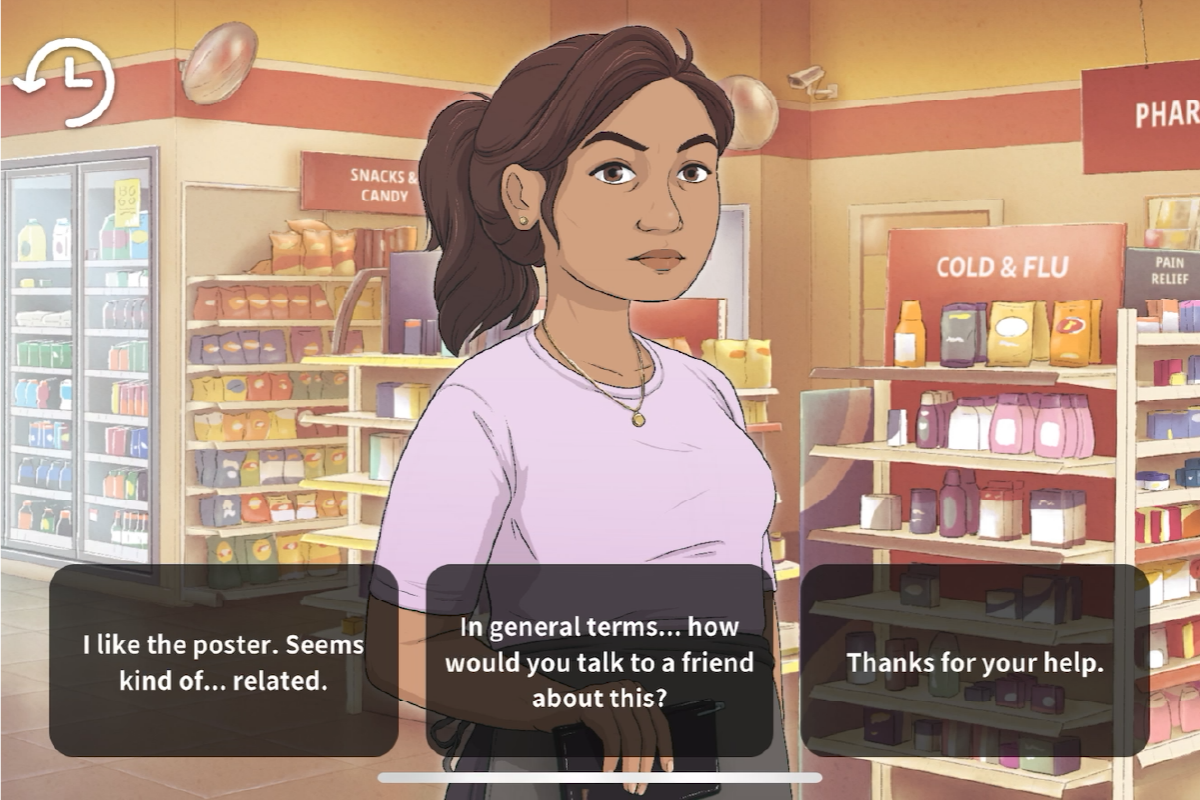
New One Love Game Uses SEL to Help Young People Learn to Love Better
Cadence Ford helps teens learn of the unhealthy behaviors that may surface in relationships and practice how to intervene if they see a friend navigating them.
One in three young people will have an unhealthy relationship before reaching adulthood.
Interpersonal violence remains the third leading cause of adolescent death, contributing to one in every five teen suicides.
The need for more awareness-building and preventive interventions that help teens live full, safe, and healthy lives is unmistakable. Cadence Ford, a new mobile game made by the One Love Foundation in partnership with iThrive Games and Playmatics, LLC, responds to it with a safe and playful space for young people to familiarize themselves with unhealthy behaviors that may surface in relationships. As players interact with each story in the game, they are tasked with figuring out how to talk with their friends about uncomfortable issues and how to offer assistance in each of their unique circumstances. Through play, the game meets teens and young adults where they are to support their social and emotional learning and practice of constructive relationship skills.
"Cadence Ford builds on One Love's mission to bring life-saving prevention education to young people and expands on our honoring of Yeardley Love—a daughter, friend, and student-athlete whose life was tragically cut short by an ex-boyfriend in 2010 three weeks shy of graduating from the University in Virginia," shares Madeline Hopper, Senior Product Manager at the One Love Foundation. "Our goal with this game is to equip young people with the tools to love better, be with partners who practice healthy love, and advocate for healthy relationships. Because those tools are social and emotional, we were glad to have iThrive Games—experts in young people's social and emotional learning—be our partners throughout its development."
Our team joins One Love, and the teens and young adults who have played the game so far in hopes that Cadence Ford helps every person it reaches be aware, self-preserving, and better support systems for their friends in a world where antisocial interactions and unhealthy relationships are likely to be encountered. "We want all who play Cadence Ford to come to it with curiosity," shares Susan Rivers, Ph.D., iThrive's Executive Director and Chief Scientist. "And we want them to leave it empowered and better prepared to be ambassadors and practitioners of safe love and healthy communication."
MEANINGFUL GAMEPLAY, MEANINGFUL LEARNING
Cadence Ford sets forth a time-bending adventure in a charming town. Clocks have stopped, and the once-thriving community has fallen apart. The player must travel back to meet former friends, explore their stories, solve their mysteries, unearth past mistakes, and change the future before the present takes hold.
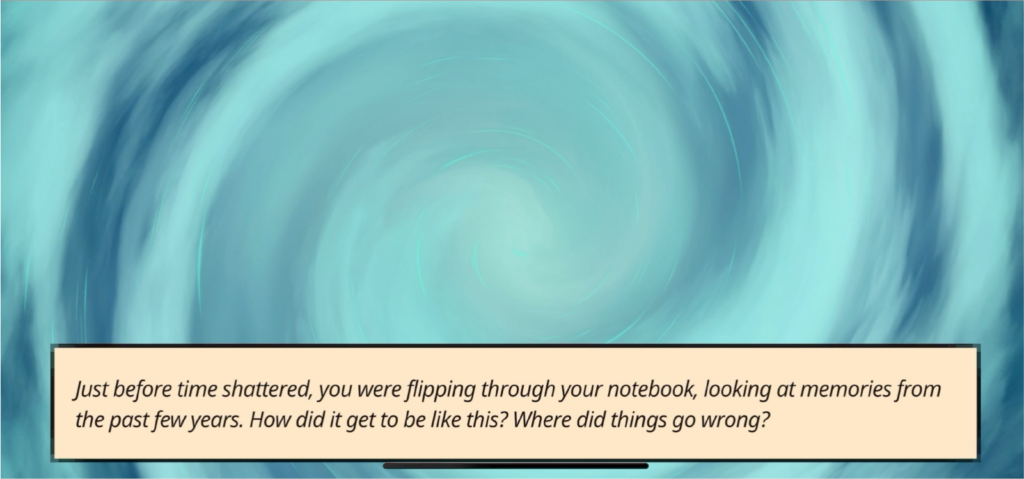
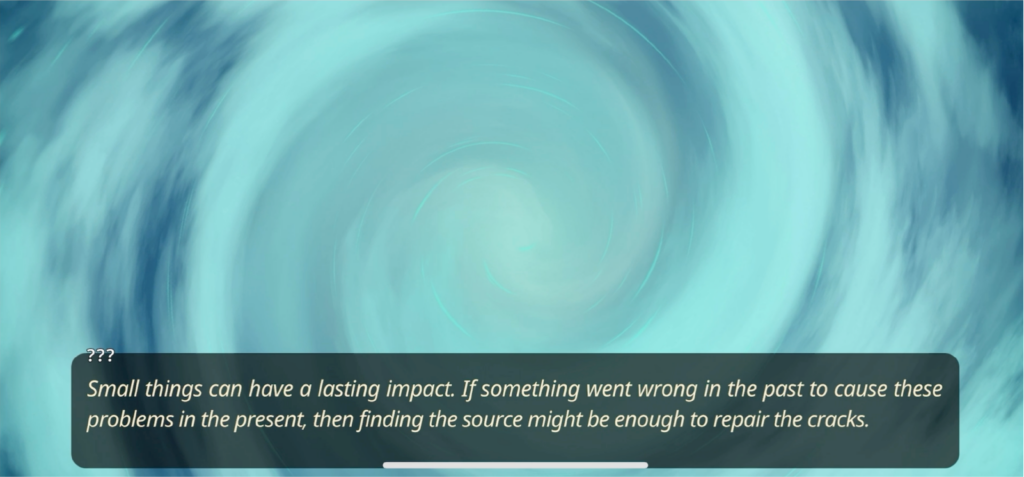
To do this, the player must make critical decisions throughout the game with how they communicate and interact with those past connections. Words must be chosen carefully since their friends' futures depend on it.
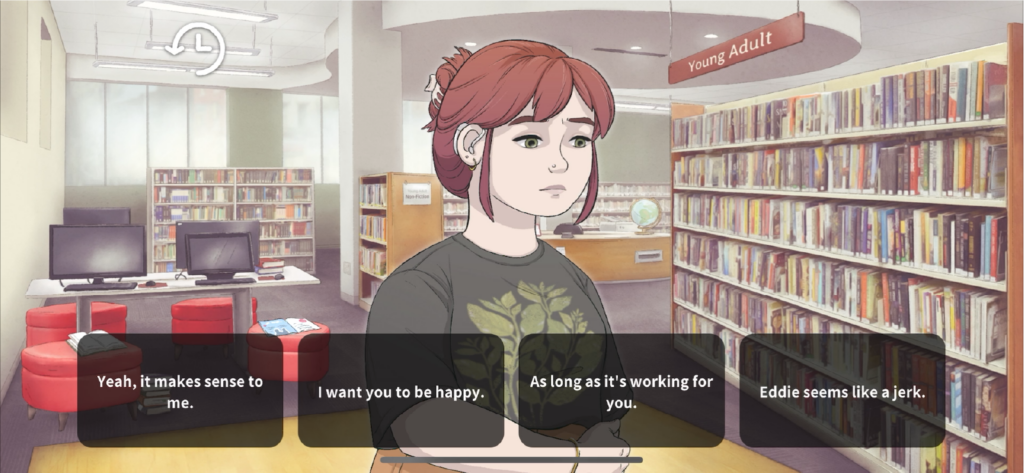
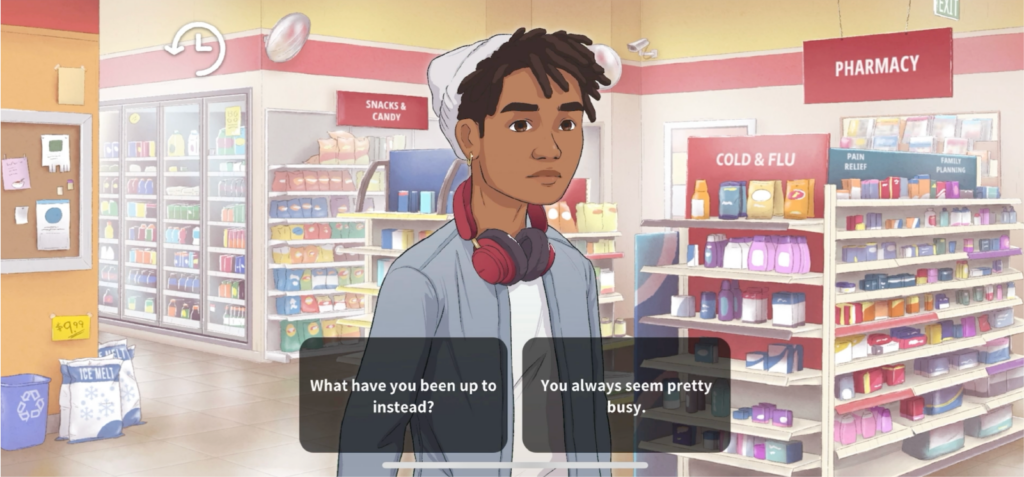
iThrive's teen social and emotional health expertise helped direct Cadence Ford's development cycle and supported the team's decision to make the game a text-based strategy one. In doing so, the play experience would build players' relationship skills by enabling their agency to make decisions and learn from them. "Games have always been microcosms of the real world, making them a springboard for exploring new ways of doing and being," shares Jane Lee, iThrive's Senior Director of Operations and Mental Health. "With Cadence Ford, we wanted to create a low-stakes, thought-provoking environment for young people to arrive at new understandings of who they are and the world around them. By making it a choice-filled offering, we offer young people a context to think expansively, arrive at learnings authentically, and fail safely."

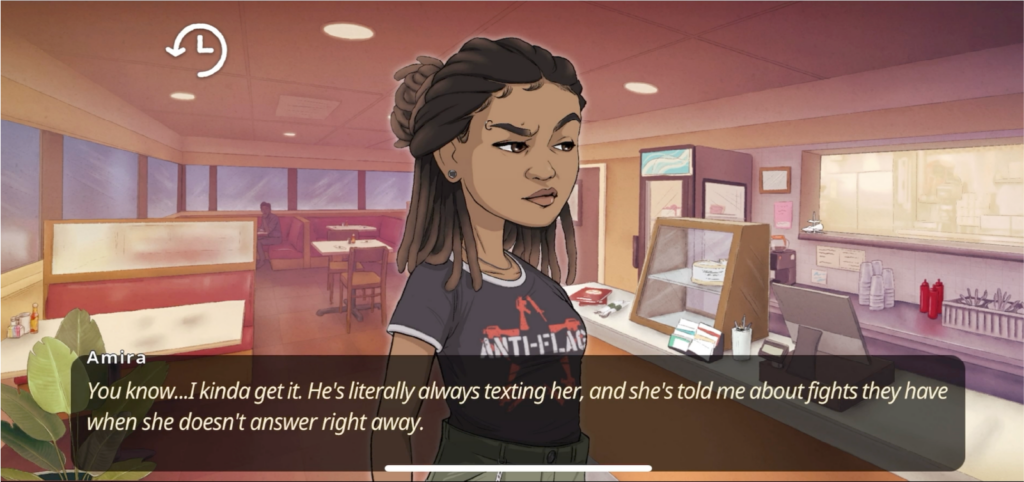
The game's mechanics assist players in navigating uneasy settings. Each of its interactive character stories helps sharpen the players' ability to listen actively, attend to conflict through productive communication, better understand restorative practices, recognize unhealthy behaviors, and uphold healthy ones.
Young people demand and deserve an ecosystem of care to do the social and emotional work that starts in early adolescence safely. Cadence Ford fits into that ecosystem by connecting them to this transformative social and emotional learning through play—a tool they're familiar with.
CO-DESIGNING STARTS WITH AND NOURISHES TEEN GENIUS
Beyond just using play as a lever for meaningful learning, the resonance of Cadence Ford is due mainly to its development alongside teens. iThrive's innovative co-design approach with young people was employed from the beginning to support us in folding in the wisdom of teens whose insights and feedback were integrated into the final play experience.
Everyone involved in the design and development of this game values the inquiry and imagination of young people. Teens and young adults in One Love and iThrive Games' networks were at the table from start to finish and developed their game design and social and emotional skills throughout the process.
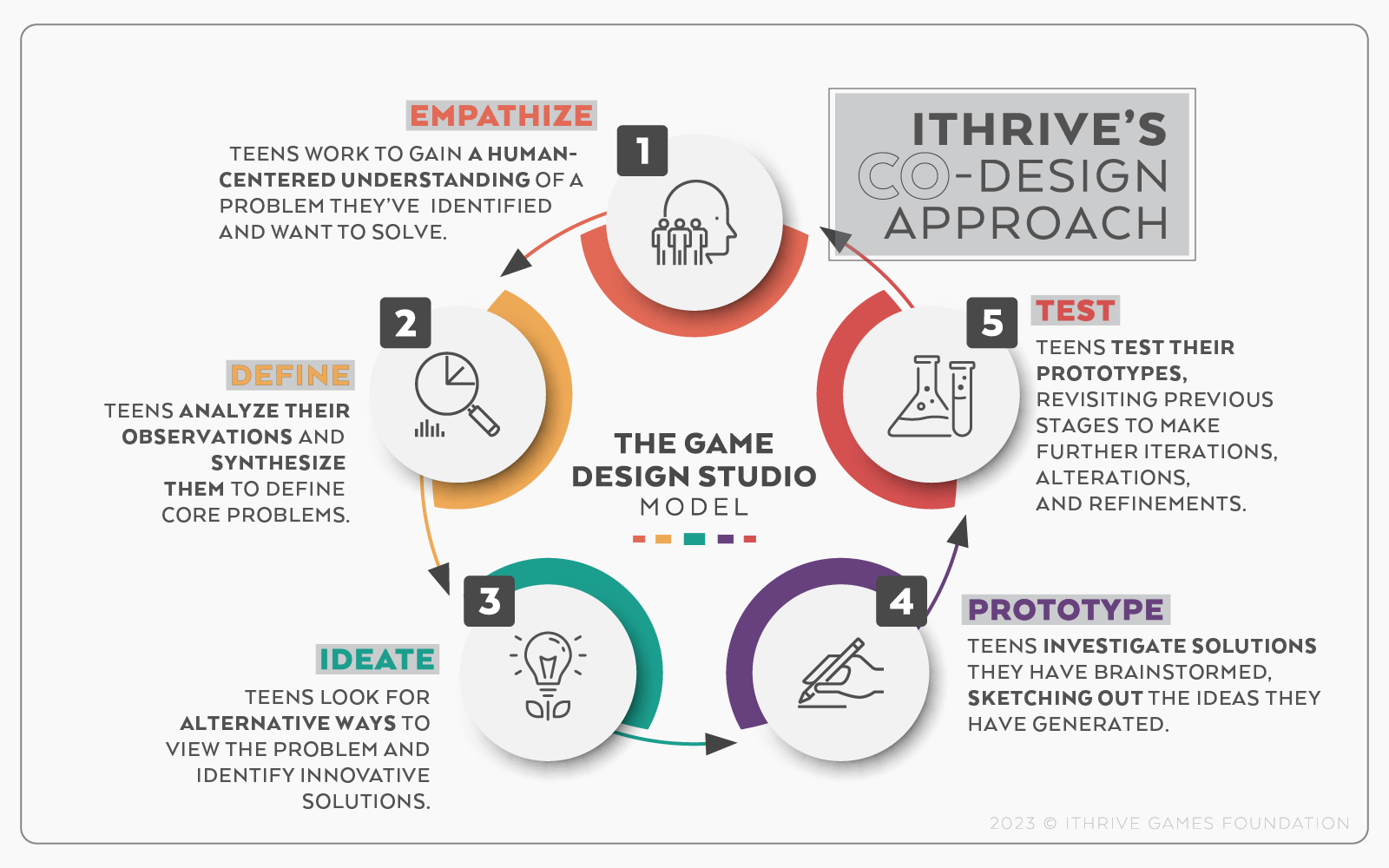
Explore some of the activities that make up iThrive Games' Game Design Studio model here.
The Game Design Studio model at the heart of our co-design approach is a strengths-based one, and bringing it to the young people we co-created Cadence Ford with helped them uncover and share their thoughts. In co-design workshops, they shared perceptions on the importance of healthy relationships, defining what healthy and unhealthy signs of a relationship look like in their worlds and minds, and exploring with peers how to best navigate discomfort when it appears in the body and in peer relationships. Each of the co-designers and playtesters who lent their genius to Cadence Ford was compensated for their ingenuity as thought partners throughout this shared endeavor.
WHAT YOUNG PEOPLE SAY ABOUT CADENCE FORD
The play experience in Cadence Ford is yet another testament to the power of game-based learning. When young people who played the game for the first time were asked, "What did you learn about talking to friends in unhealthy relationships?" they shared responses that reflected their sharpened relationship skills and communication practices like "star[ing off small before jumping into the topic" and aiming to "understand their situation while encouraging healthy habits." Others shared that through the game, they "learned some new lines to help [themselves] and friends cope with relationship and friendship situations," "how to spot unhealthy behavior in a relationship," and "how to respond in situations where you see someone you know in these unhealthy relationships."
Like the many who have played the game and been a part of its making, we want Cadence Ford to assist young people in learning to be champions of healthy love and be with partners who practice it. "Yeardley's legacy of joy lives on in this game," shares Hopper. "At One Love, we work to change the statistics around relationship abuse one conversation at a time. With Cadence Ford, we're promoting that change one play session at a time."



